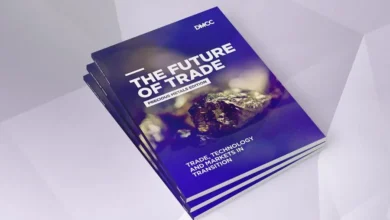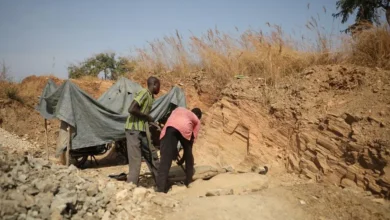
DUBAI, United Arab Emirates—Manitoulin Island had two citizens with roles at the recently-concluded COP28 Conference on the environment, an event that ended in the hard-won statement urging nations to shift away from fossil fuels, strive for net-zero emissions and aim to maintain the 1.5°C warming target.
Within six years (2030), countries at the event committed to tripling renewable energy and doubling energy efficiency.
While hailed as a breakthrough, the agreement notably lacks a radical phase-out of fossil fuels, prompting mixed reactions.
Despite its strides, critics view COP28’s progress—especially in phasing out fossil fuels—as inadequate. Assessments by the International Energy Agency confirm that current pledges won’t limit global warming to 1.5°C. The conference, held in oil territory, witnessed heated debates on divesting from fossil fuels, with the Organization of the Petroleum Exporting Countries (OPEC) hosting its pavilion for the first time. This sparked criticism from environmental activists, highlighting the disproportion between oil and gas representatives and Indigenous delegations.
At the summit, Linda Debassige, the former chief of M’Chigeeng, spoke at the Canada Pavilion on a panel addressing Indigenous perspectives on climate change’s impact on water access. She recounted a pivotal moment when the COP28 president, sensing tensions, urged delegates to set aside policies and adopt a more humanistic approach, fostering collaboration through cultural connections. In this spirit, “We invited everyone to come together in their own traditional ways and share their cultures as a means of coming to the table as a collective,” Ms. Debassige told The Expositor following the event’s wrap-up closing event.
Craig Hughson, originally from Little Current but who now lives and works in Toronto, attended COP28 as a strategic government relations specialist, a role he characterizes as a media manager, working for COP28.
Mr. Hughson told The Expositor plainly that, “we weren’t sure if we were going to see an agreement reached. The gavel (ending the event) could have dropped at any time.”
The UAE Consensus comes after a full year of diplomatic engagements and two weeks of impassioned negotiations. It is the culmination of the COP28 president’s goal to propel a new architecture for climate finance to deliver on the central aims of the Paris Agreement.
“The world needed to find a new way. By following our North Star (The Paris Agreement), we have found that path,” said COP28 President, Dr. Sultan Al Jaber during his closing speech. “We have worked very hard to secure a better future for our people and our planet. We should be proud of our historic achievement.”
“We must accelerate a just, equitable transition to renewables. The science is clear: The 1.5-degree limit is only possible if we ultimately stop burning all fossil fuels,” said UN Secretary General Antonio Guterres in a speech during the opening days of the summit. “Not reduce. Not abate. Phase out—with a clear timeframe.”
A shift away from fossil fuels means, for mineral-rich Canada, in particular areas of Ontario’s Canadian Shield, new mining developments to produce “critical minerals” required for the manufacture of batteries for the next generation of vehicles. Canada has mandated that, by 2035, all new vehicles produced and sold must be “zero emission.”
At COP28, Jayce Chiblow of Garden River First Nation, representing Indigenous Climate Action, highlighted the challenges and concerns regarding the UAE Consensus. While acknowledging the positive shift away from fossil fuels, Ms. Chiblow cautioned about the difficulties in overcoming cap and trade systems. Additionally, she warned against what her organization terms “false solutions,” such as nuclear power, emphasizing the threats posed to ecosystems and Indigenous lands by mining minerals like uranium.
This “race to mine” to meet the demand critical minerals poses particular concerns for leadership and members of the Indigenous communities on whose traditional territories their efforts are expected to take place.
The Ring of Fire in Ontario has become a hotbed for mining claims, primarily due to the discovery of valuable minerals like chromite, nickel and copper. Political pressure to build infrastructure for mining has intensified, with comparisons made to the economic potential of the Athabasca oil sands. The area’s mineral wealth, especially nickel and copper crucial for electric vehicle production, has drawn significant attention.
The rush for mining opportunities, however, clashes with ecological concerns. The Ring of Fire sits within the Hudson Bay Lowlands, home to extensive peatlands that store substantial amounts of carbon and act as a buffer against climate change. Disturbing these peatlands could release stored carbon dioxide, exacerbating environmental issues.
The Ontario government’s Critical Minerals Strategy aims to leverage the region’s mineral wealth to bolster the province’s manufacturing economy. The strategy emphasizes creating a robust domestic supply chain and attracting investors with favorable business conditions.
Recent legislative changes, notably Bill 71 or the Building More Mines Act, have raised alarms. These amendments grant the Minister of Mines unprecedented powers, consolidating roles and potentially compromising safety and environmental standards. The changes remove key governmental oversight, allowing industry-affiliated individuals to oversee their companies’ closure plans and granting leeway for mines not meeting regulatory requirements.
Indigenous groups like the Muschkegowuk Council in Ontario’s Northwest area, representing various communities, have strongly criticized the amendments. They deem the changes unsafe, unconstitutional and a threat to their lands and well-being.
Climate change and extreme weather events, for example, could put the stability of tailings storage facilities at risk for cataclysmic tailings dam failures at legacy mining operations as increased climate variables have not been considered in the engineering and construction of current tailings dams. Reliable data for climate change adaptation is critical for determining the life cycle of new and existing tailings storage facilities. Climate adaptation funding for economically repressed countries and communities was a topic of concern at COP28 summit, with some countries criticizing the vague language on where the financing would come from. The current $100 billion annual budget has been missed in the past, and expires in 2025.
Ms. Chiblow also stated that plans for carbon capture and storage are also problematic as it is unproven technology. “In order to ethically transition from fossil fuels, we must ensure that Indigenous land-based knowledge is not only included but centred. In order for just transition to occur, there must be Indigenous-led, just transition. Our organization is mostly concerned with providing people with the necessary information to make decisions for a better future for everyone. One of the things I have noticed when we do education and trading, there is a fear of divestment from fossil fuels because it provides jobs to both Indigenous and non-Indigenous people alike.”
When The Expositor asked Mr. Hughson about the potential drawbacks to shifting to ‘green energies’ through the mining industry, he observed optimistically that, “Canada has long been critiqued for mining and exporting the materials to be processed overseas. If it’s going to happen anyway, we should consider what keeping this industry on domestic soil could mean for our economy.”
With the new changes to the mining act, there are renewed concerns that entrusting corporations to protect the ecosystems in which they operate, particularly when looking at what has recently happened in Attawapiskat where a March 25 report released by DeBeers Canada indicated its study had revealed high levels of mercury in both the watershed and fish, recommending band members eat only a certain amount of fish per week and that some varieties, walleye and whitefish, should only be consumed once a month.
The issue stems from the now-closed Victor Diamond Mine in the Cochrane Districts, where water pumped from the mine’s open pit into the Attawapiskat River triggered a rise in mercury levels.
In Sudbury, Vale (formerly the International Nickel Company of Canada Ltd. INCO) and Glencore (formerly Falconbridge Nickel Mines Ltd.) have big plans to mine for nickel to compete in the electric vehicles industry. Frontier Lithium is exploring two lithium deposits in Northwestern Ontario that have enough resources to build almost 500,000 batteries per year for electric vehicles.
The question of the settlement of the Robinson-Huron and Robinson-Superior treaties has some seeing mining and resource speculation in Northern Ontario as a dangerous gamble. As we approach a closing of these treaties, the area becomes a safer economic bet for resource extraction. When asked about the potential for new mines to be opened up in Robinson-Huron Treaty territory, Ms. Debassige told The Expositor, “we are looking at two levels of government that have received delegated responsibility. We, as First Nations, often become a jurisdictional pinball. When we look at things from treaty territory, there is very little to ensure Indigenous voices were heard. So, it becomes really quite complex. Things are a mess already and they will become more of a mess, depending on what the government sees as a priority pathway.” She also says that the global community needs to change the way it thinks about water, “less as a commodity but more as a holistic need for everyone on the planet.”
Ms. Debassige also went on to say that “climate change is impacting the ability to access safe drinking water. Forest fires and floods are affecting access to treated water as well as aquifers drying up. It is clear that source waters from around the planet are drying up. Some countries are doing really well integrating traditional knowledge from their First Peoples. There is a lot of technology around the world that is really interesting and the world could benefit from coming together and sharing our different knowledges. Some countries are treating climate change as a non-partisan issue, which I think is needed here in Canada.”
The timeframe for the phasing out of fossil fuels allows time for developing new technologies, but will depend on collaborative measures globally, federally, provincially and locally by all sectors.




